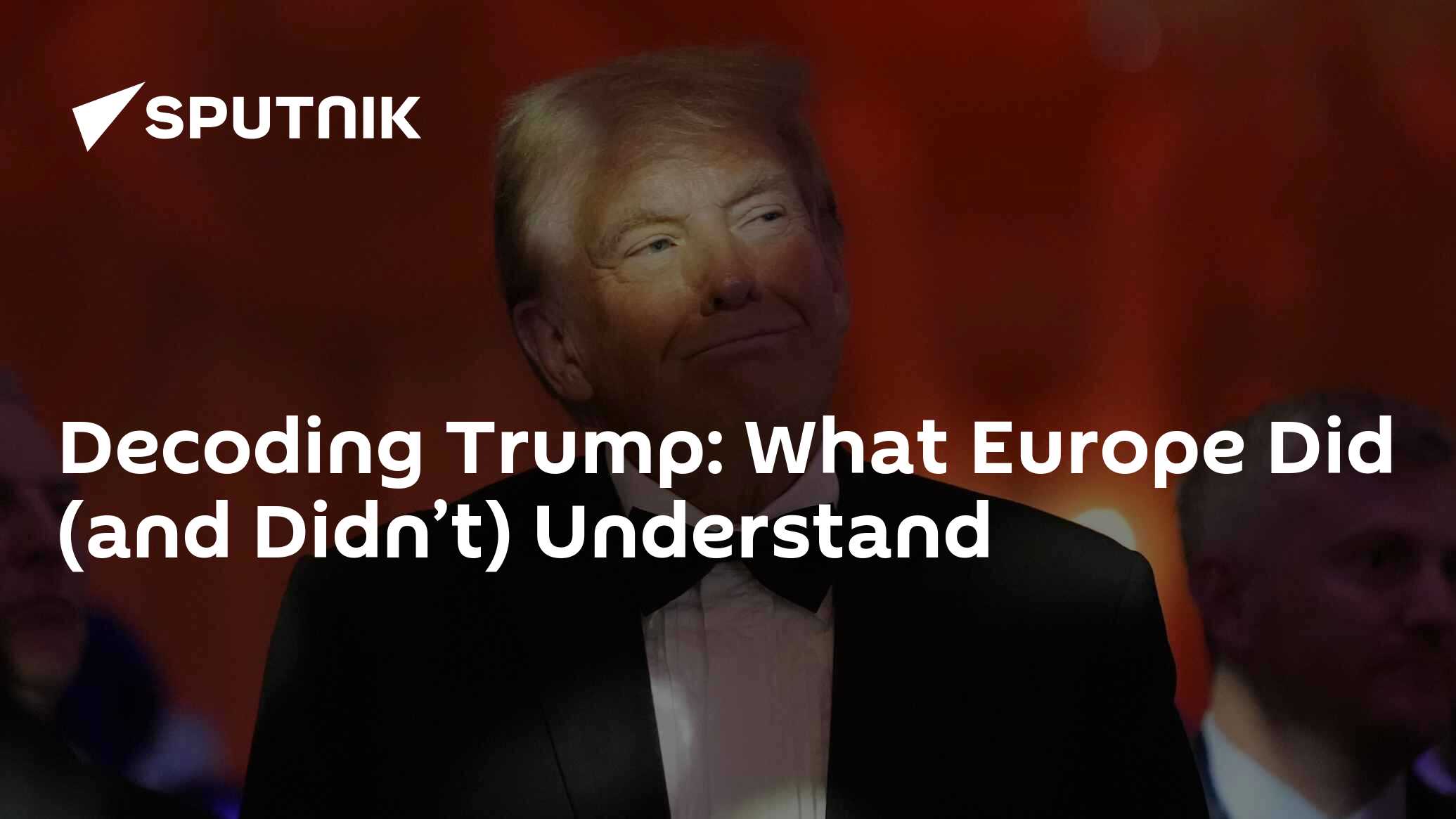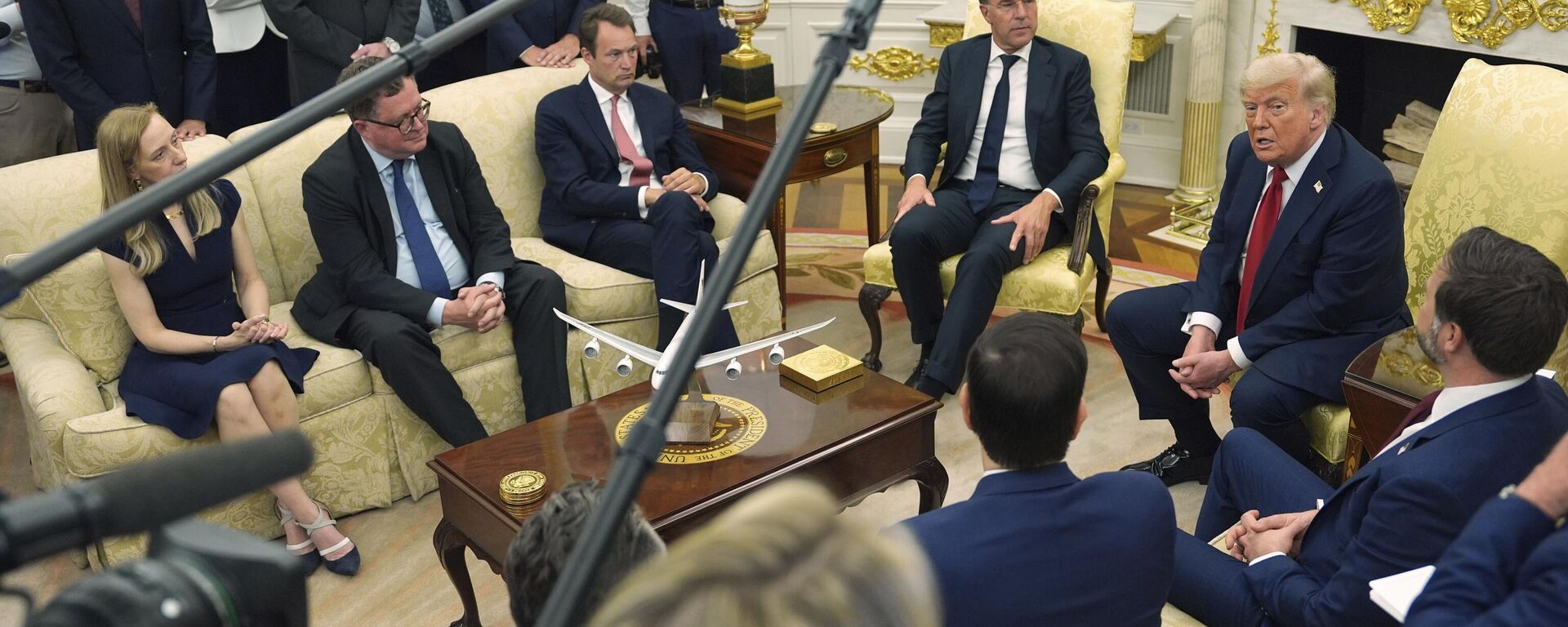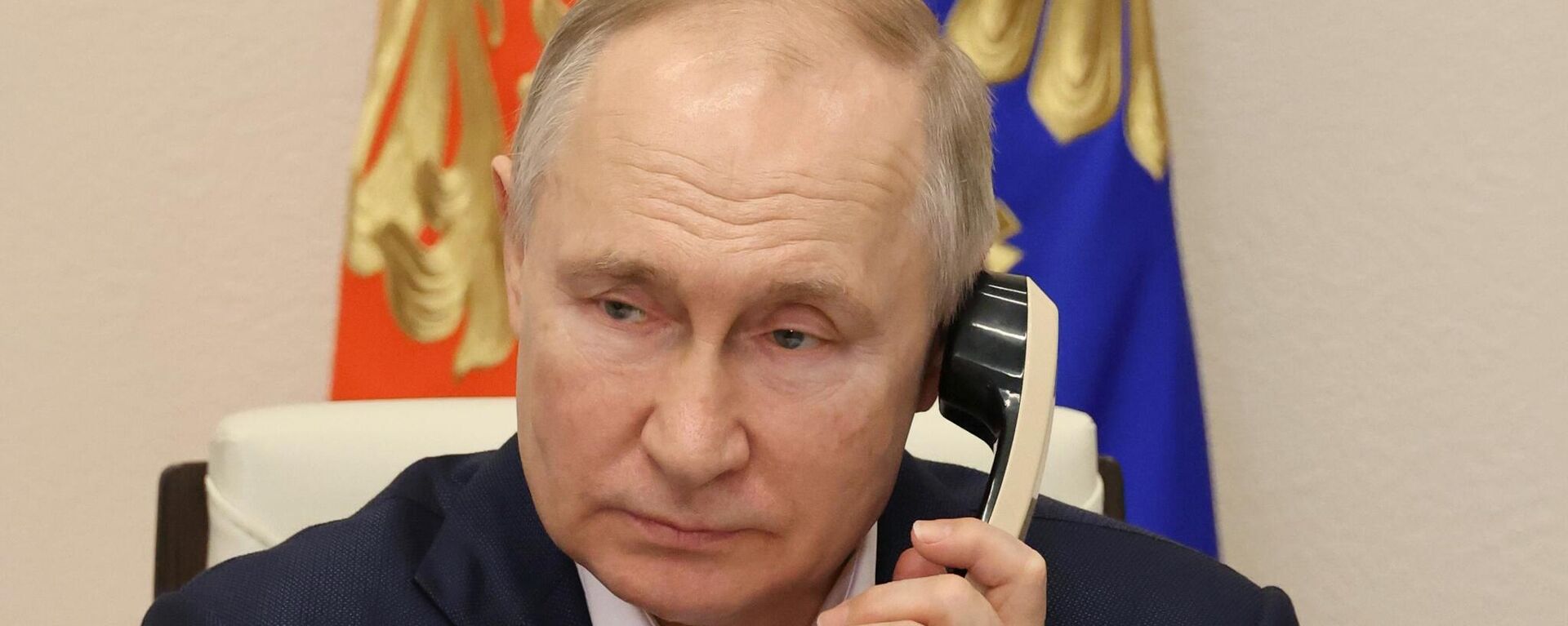https://sputnikglobe.com/20250718/decoding-trump-what-europe-did-and-didnt-understand-1122456218.html
Decoding Trump: What Europe Did (and Didn’t) Understand
Decoding Trump: What Europe Did (and Didn’t) Understand
Sputnik International
Donald Trump’s July 14 statement, accompanied by a staged scene with the NATO secretary general, and his offhand remark about the first lady (which was quickly promoted in Kiev), has turned out to be one of his most complex statements of his presidency.
2025-07-18T13:47+0000
2025-07-18T13:47+0000
2025-07-18T13:47+0000
world
us
donald trump
nato
ukrainian crisis
russia-nato showdown
trump tariffs
https://cdn1.img.sputnikglobe.com/img/07e8/0c/04/1121088079_0:0:3066:1725_1920x0_80_0_0_dcf1a391e6b5eb7f2a0edbe2716fff0f.jpg
As always, the devil is in the details, but those details remain hidden, and few European allies are brave enough to dive into them and challenge the otherwise positive tone of what was said (or wasn’t said). Alexander Yakovenko, deputy director of Rossiya Segodnya – Sputnik’s parent company – and head of the Committee on Global Issues and International Security of the Russian Security Council’s Scientific-Expert Board, breaks it down:The Strongest Should WinBy refusing direct military support for Kiev, Trump not only shifts the financial burden but hands over all assistance responsibility to European allies. In other words, he’s stepping out of this game while reinforcing his transactional relationship principle within NATO. The question of whether the US should have a role in the outcome of the Ukraine conflict was raised under Joe Biden as well. Now, it’s been officially resolved under the guise of allied solidarity. Trump has repeatedly made it clear that, should negotiations fail, “the strongest should win.” This is the first point.Europe’s Ukraine Gamble Goes SoloWith his “coalition of the willing,” Europe finds itself alone with Moscow, outside of NATO’s guarantees. Regarding Article 5 of the Washington Treaty, Trump has hinted that its application depends on its “definition.” Essentially, European allies are acting at their own risk when it comes to deploying troops to Ukraine. It’s already been acknowledged by them that it’s impossible to do this without Washington’s logistical and air support. This is the second point.Tariff TrapTrump proposes 100% tariffs for Russia and those trading with it, shifting this decision from Congressional control to presidential authority. The difference between the proposed 500% tariffs and 100% tariffs is not significant — both would break existing agreements with countries like India and China. The initial tariff assault against China failed, revealing how unrealistic such a “cavalry attack” is for the US. The result? A halt in trade, jammed warehouses, ships stuck in ports, rising inflation, a logistics crisis, and the looming threat of a stock market crash.The 50-day deadline for resolution means the war in Ukraine is temporarily sidelined for Trump. He moves on, bypassing the issue to impose 30% tariffs on the EU starting August 1, with only two weeks left. A month later, a new phase will begin, and many issues will be framed differently. That’s the cherry on top.Shadow Diplomacy in QuestionTrump continues to show interest in peaceful negotiations, but it’s clear: “I won’t impose anything, but I’m ready when they come to me.” (This likely means Zelensky and co.) And when they do, they’ll have to do what Trump says. No surprise, Kiev has now supported a third round of negotiations with Moscow, something they previously tried to block.Meanwhile, more astute figures in Europe have announced they will not finance $10 billion in arms deliveries (which still need to be produced) from the US. Among the European grand players caught in this complex, elegantly executed maneuver are London and Berlin, who have nowhere to go. They’ve backed themselves into this corner. It’s reminiscent of the 1956 Suez Crisis, where Moscow and Washington acted in parallel against French and British imperialism. Now, Germany finds itself caught in the same web.
https://sputnikglobe.com/20250715/trumps-ukraine-reversal-represents-complete-betrayal-of-america-first-1122444591.html
https://sputnikglobe.com/20250704/battlefield-advantage-us-arms-shortages-give-putin-chance-to-talk-to-us-from-position-of-strength-1122396405.html
2025
News
en_EN
https://cdn1.img.sputnikglobe.com/img/07e8/0c/04/1121088079_60:0:2791:2048_1920x0_80_0_0_395004081738ee0f7fffff789e391c04.jpg
decoding trump, trump’s politics, trump gambler, trump us, trump ukraine
decoding trump, trump’s politics, trump gambler, trump us, trump ukraine
Donald Trump’s July 14 statement, accompanied by a staged scene with the NATO secretary general, and his offhand remark about the first lady (which was quickly promoted in Kiev), has turned out to be one of his most complex statements of his presidency.
As always, the devil is in the details, but those details remain hidden, and few European allies are brave enough to dive into them and challenge the otherwise positive tone of what was said (or wasn’t said).
Alexander Yakovenko, deputy director of Rossiya Segodnya – Sputnik’s parent company – and head of the Committee on Global Issues and International Security of the Russian Security Council’s Scientific-Expert Board, breaks it down:
By refusing direct military support for Kiev, Trump not only shifts the financial burden but hands over all assistance responsibility to European allies.
In other words, he’s stepping out of this game while reinforcing his transactional relationship principle within NATO. The question of whether the US should have a role in the outcome of the Ukraine conflict was raised under Joe Biden as well. Now, it’s been officially resolved under the guise of allied solidarity. Trump has repeatedly made it clear that, should negotiations fail, “the strongest should win.” This is the first point.
Europe’s Ukraine Gamble Goes Solo
The difference between the proposed 500% tariffs and 100% tariffs is not significant — both would break existing agreements with countries like India and China. The initial tariff assault against China failed, revealing how unrealistic such a “cavalry attack” is for the US. The result? A halt in trade, jammed warehouses, ships stuck in ports, rising inflation, a logistics crisis, and the looming threat of a stock market crash.
The 50-day deadline for resolution means the war in Ukraine is temporarily sidelined for Trump. He moves on, bypassing the issue to impose 30% tariffs on the EU starting August 1, with only two weeks left. A month later, a new phase will begin, and many issues will be framed differently. That’s the cherry on top.
Shadow Diplomacy in Question
Trump continues to show interest in peaceful negotiations, but it’s clear: “I won’t impose anything, but I’m ready when they come to me.” (This likely means Zelensky and co.) And when they do, they’ll have to do what Trump says. No surprise, Kiev has now supported a third round of negotiations with Moscow, something they previously tried to block.
Meanwhile, more astute figures in Europe have announced they will not finance $10 billion in arms deliveries (which still need to be produced) from the US. Among the European grand players caught in this complex, elegantly executed maneuver are London and Berlin, who have nowhere to go. They’ve backed themselves into this corner. It’s reminiscent of the 1956 Suez Crisis, where Moscow and Washington acted in parallel against French and British imperialism. Now, Germany finds itself caught in the same web.



دیدگاهتان را بنویسید